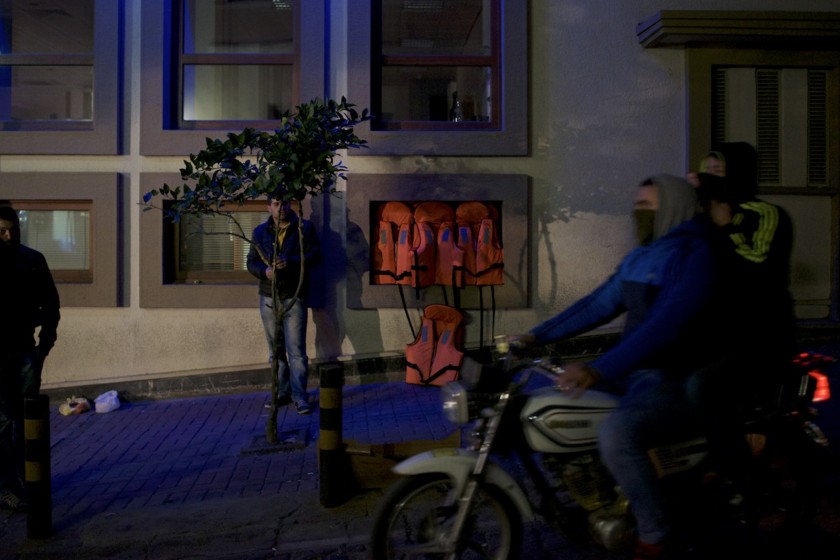
Izmir - Nights of Refugee
By Anush Babajanyan
The town of Izmir in western Turkey is one of the transit points for refugees fleeing from Syria and traveling towards Europe. Situated on the shore of the Aegean Sea, Izmir is an hour boat ride from Europe.
An illegal trip to the Greek islands is what the refugees look for as they reach Izmir; in particular the Basmane neighbourhood. Many of them manage to make arrangements with smugglers here. Those who do not have money for the trip stay on the streets or in hostels.
Each of the families has a story of loss to share and fear of the impending trip in their mind. They hang about outside mosques, in the streets, with the burden of the painful transition pouring from their eyes.
The refugees mostly do not know what awaits them if they do take the trip. Relocating and the word Europe mean hope for these people.
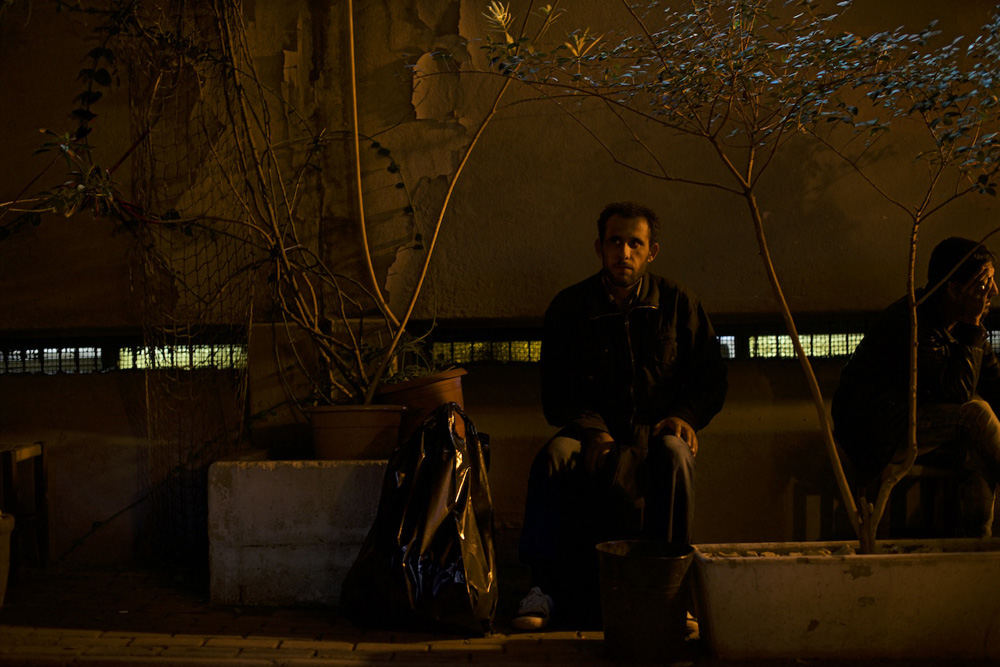
Fadi Muhammad waits in a narrow street in the Basmane neighbourhood together with his only bag of belongings; including his life vest. Fadi is leaving for Greece tonight. He says he has made his arrangements and is waiting for a call. Fadi comes from Aleppo. His parents and wife are still in Syria.
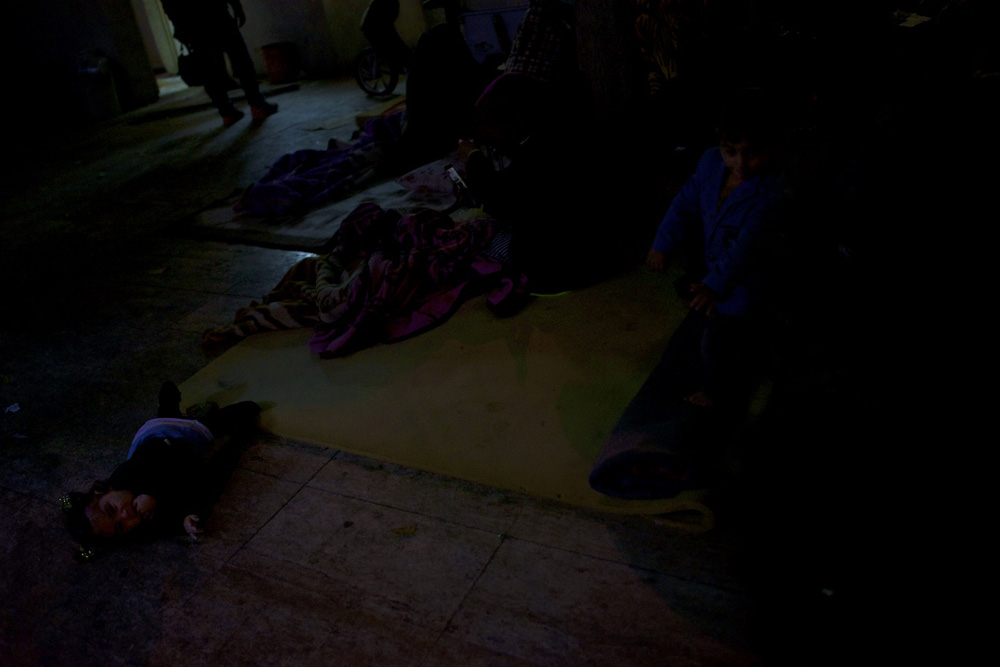
Many refugees in Izmir stay in the streets at night as the weather gets colder by the day. The Basmane Corakkapi Mosque allows families to settle on mats by the walls.
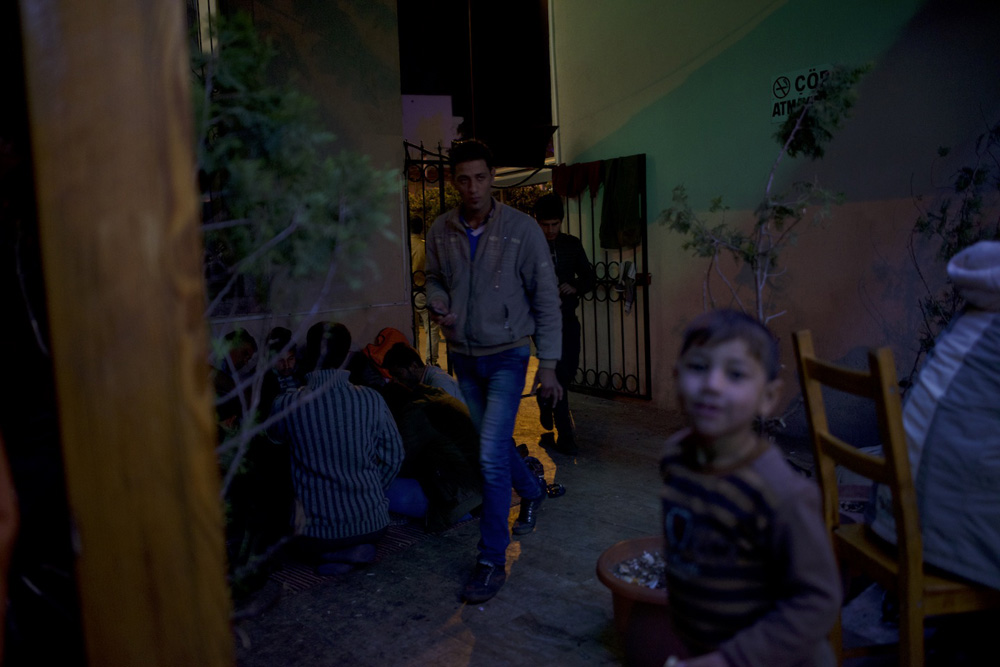
Living in poor sanitary conditions outside the mosques, families wait for a chance to travel to Europe. They wait without having made any prior arrangements. Vague hopes of making the trip keep them going.
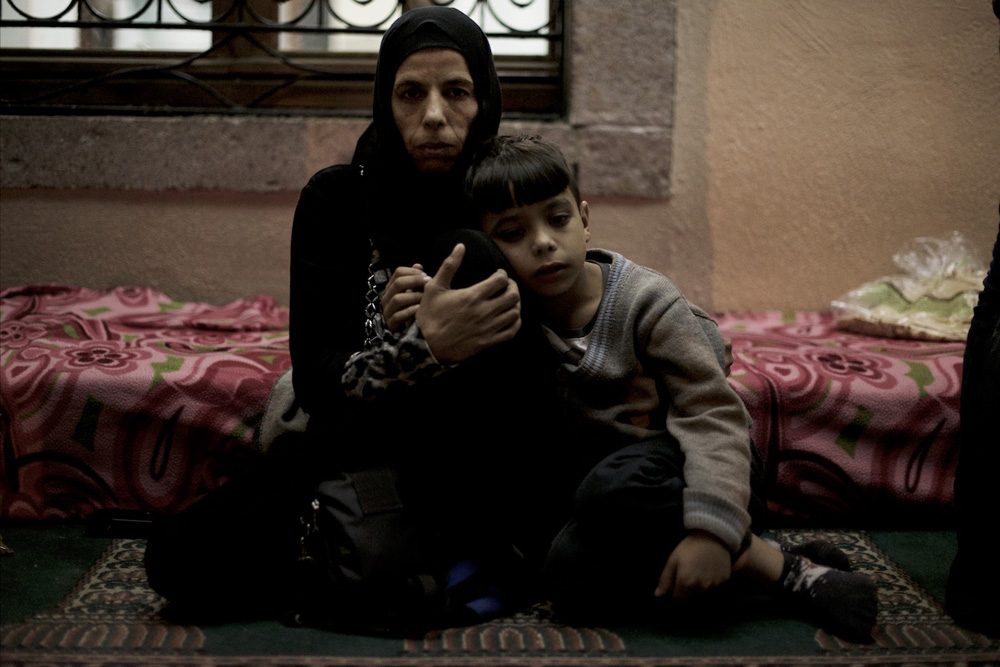
Khadra Khamees, 44, has stayed outside the Corakkapi mosque in Izmir's Basmane neighbourhood for more than ten days with her two daughters, two sons and a son-in-law. Her son Waleed, 8 can already speak Turkish. They have been in Turkey for over a year. Khadra says her family paid a smuggler $3,500 to take them by boat to Greece, but the person disappeared. Someone else now answers his phone.
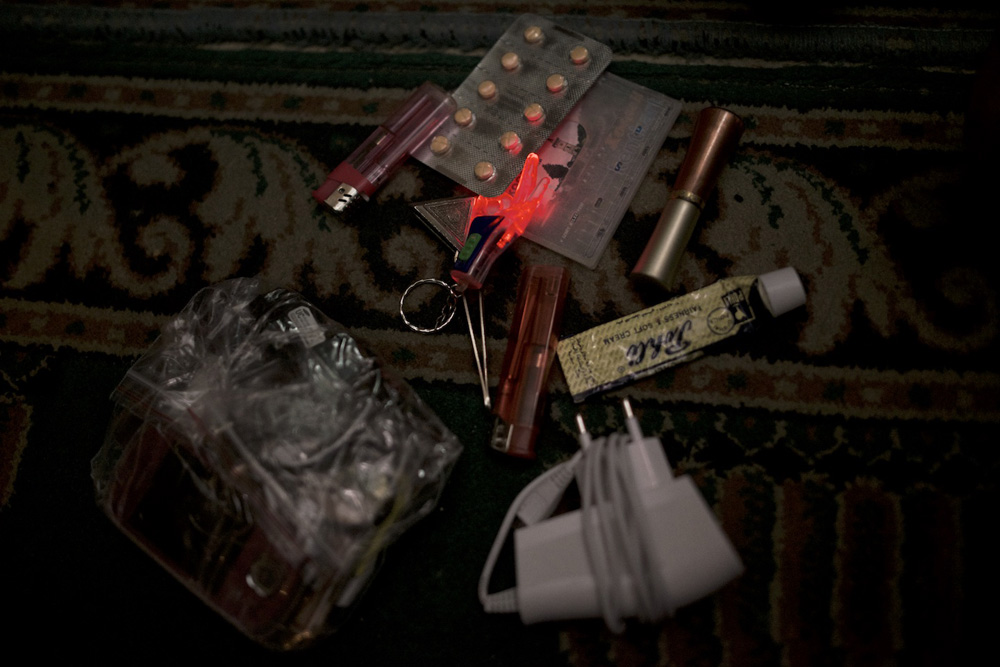
It took one month for the family of Khadra Khamees to walk from Damascus to the Turkish border in order to avoid checkpoints. Her husband and one of her three sons were killed in Syria. Khadra carries the phone and other small belongings of her husband in a bag.
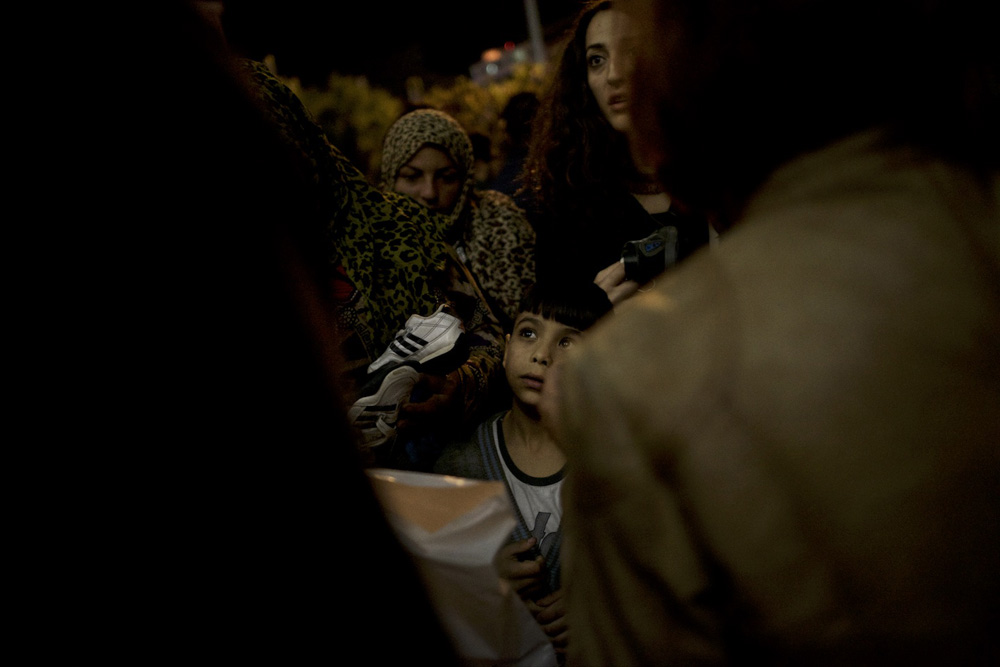
People staying in the streets are often supported by non-profits and volunteers who bring food, shoes and clothes. Waleed, 8, stands next to representatives of an organisation that brought new shoes for the refugees.
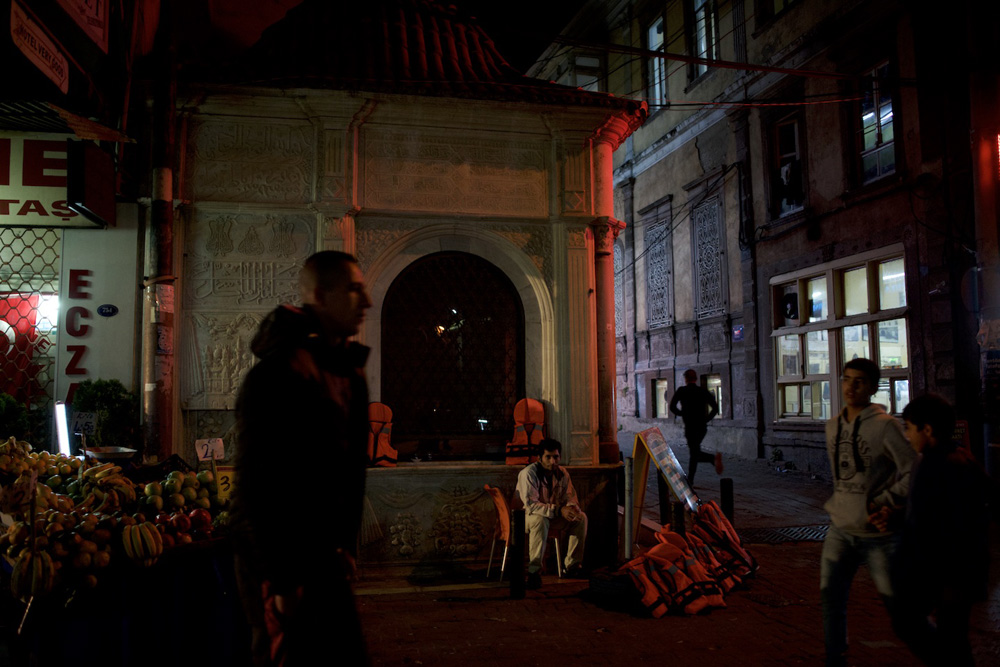
Life vests are sold on the streets of Basmane. It is where most Syrians stay before their departure to Greece. Buying a life vest is a necessity for the boat trip that awaits them.
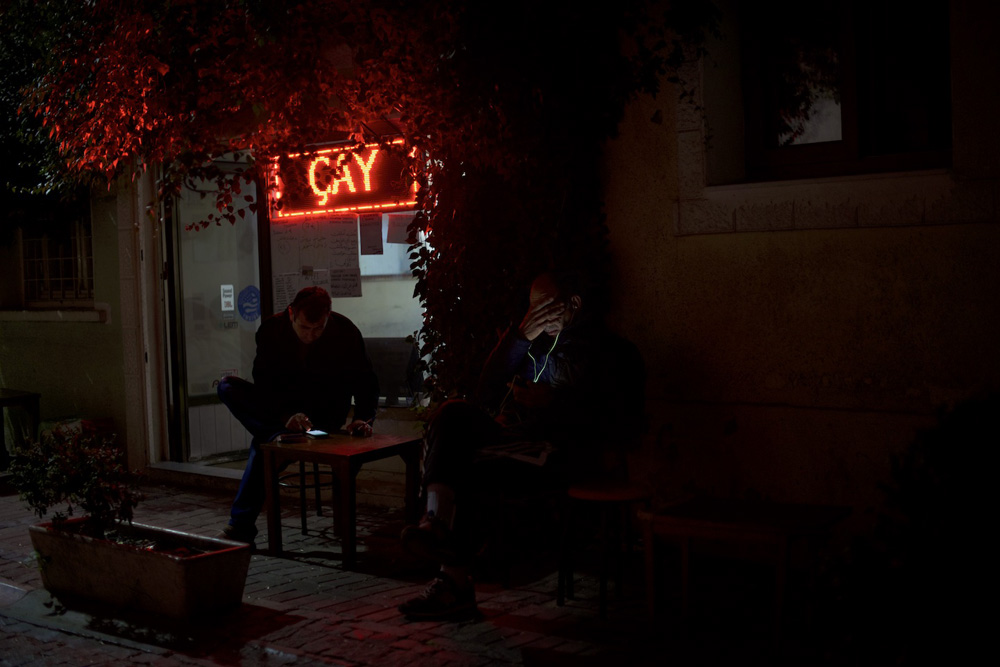
While waiting to make arrangements with the smugglers, many of the refugees spend time drinking tea in cafes, viewing their phones and connecting to others via Skype.
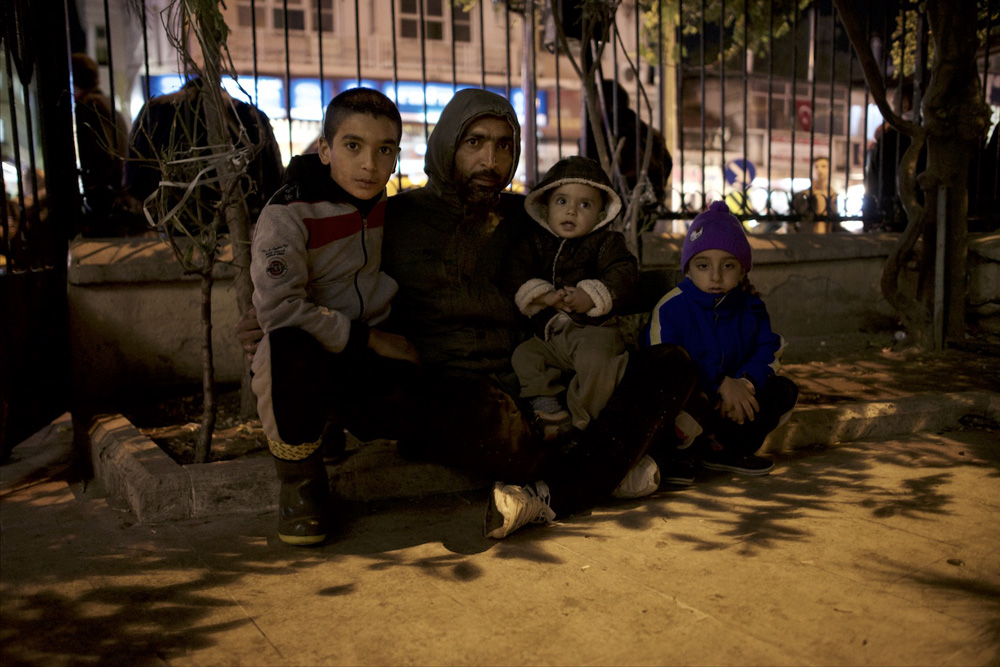
Hilal Ali, 36, the father of Ahmad, Kalil and Abdulhamid, is a musician from Al Raqa, Syria. His wife is an English teacher. They are also temporarily staying in Izmir. Hilal’s hope is to get to Germany and find a home for his family.
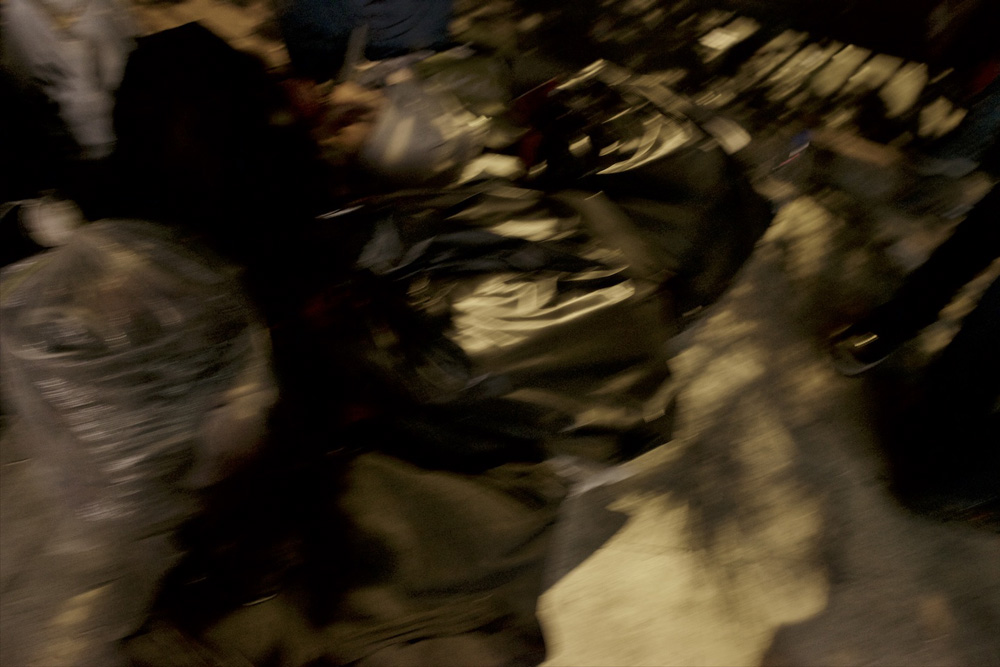
Bags with belongings and life vests purchased by the refugees are ready for the risky trip to Greece.
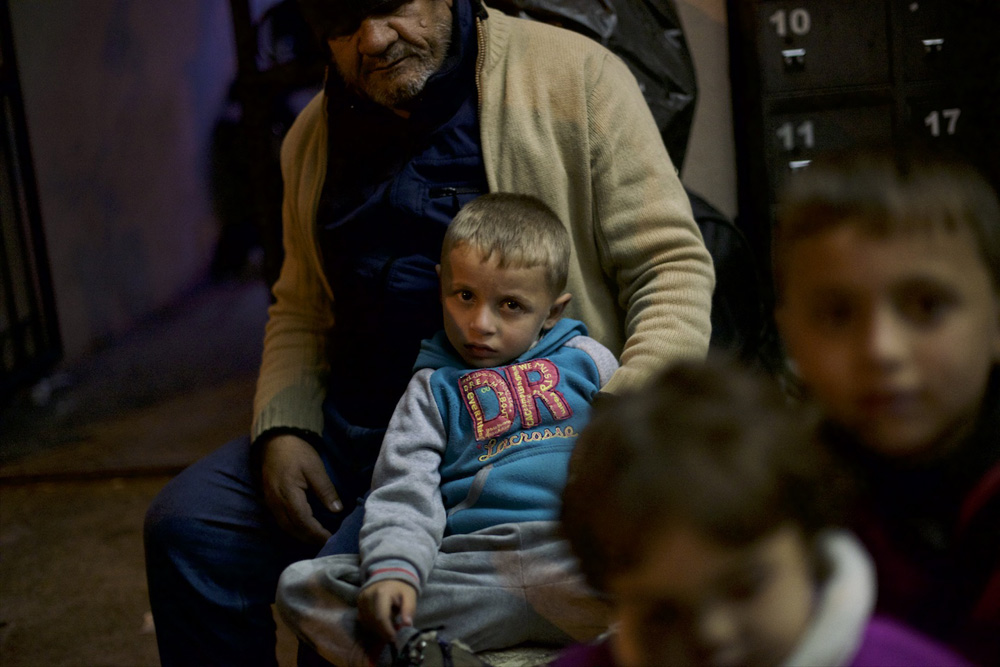
A grandfather takes care of his four grandchildren. Their father works in Germany. Their mother was killed by a bomb explosion in Syria.
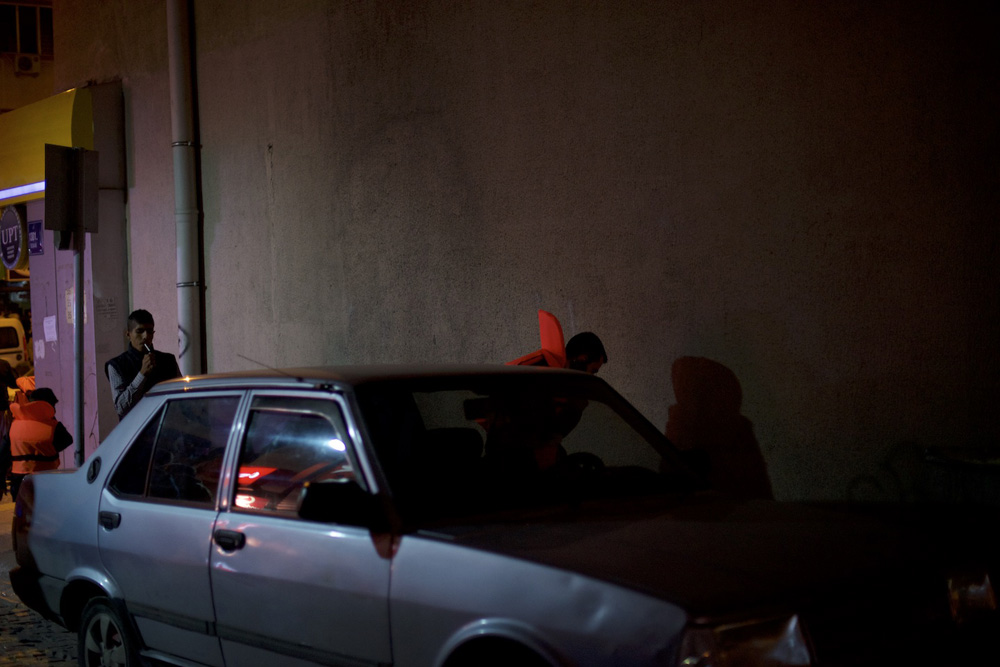
Many life vest sellers don the vest themselves to attract customers. As the weather becomes colder and windier, the trip to Greece becomes riskier. Thus, the prices change. While the price for the arrangements and the trip was around 1,000 Euros before, it now has dropped to around 800.
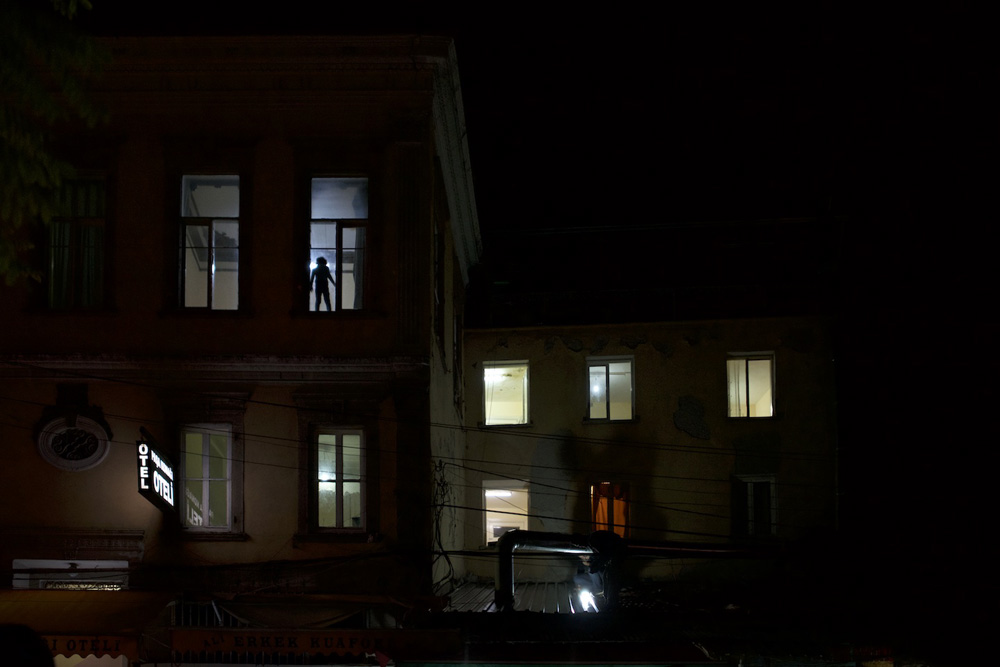
Izmir’s Basmane neighbourhood is home to numerous hotels and hostels. While some refugees manage to stay in the hostels, paying up to 50 Turkish Lira per night, many remain on the streets.
 Videos
Videos Photos
Photos




Write a comment